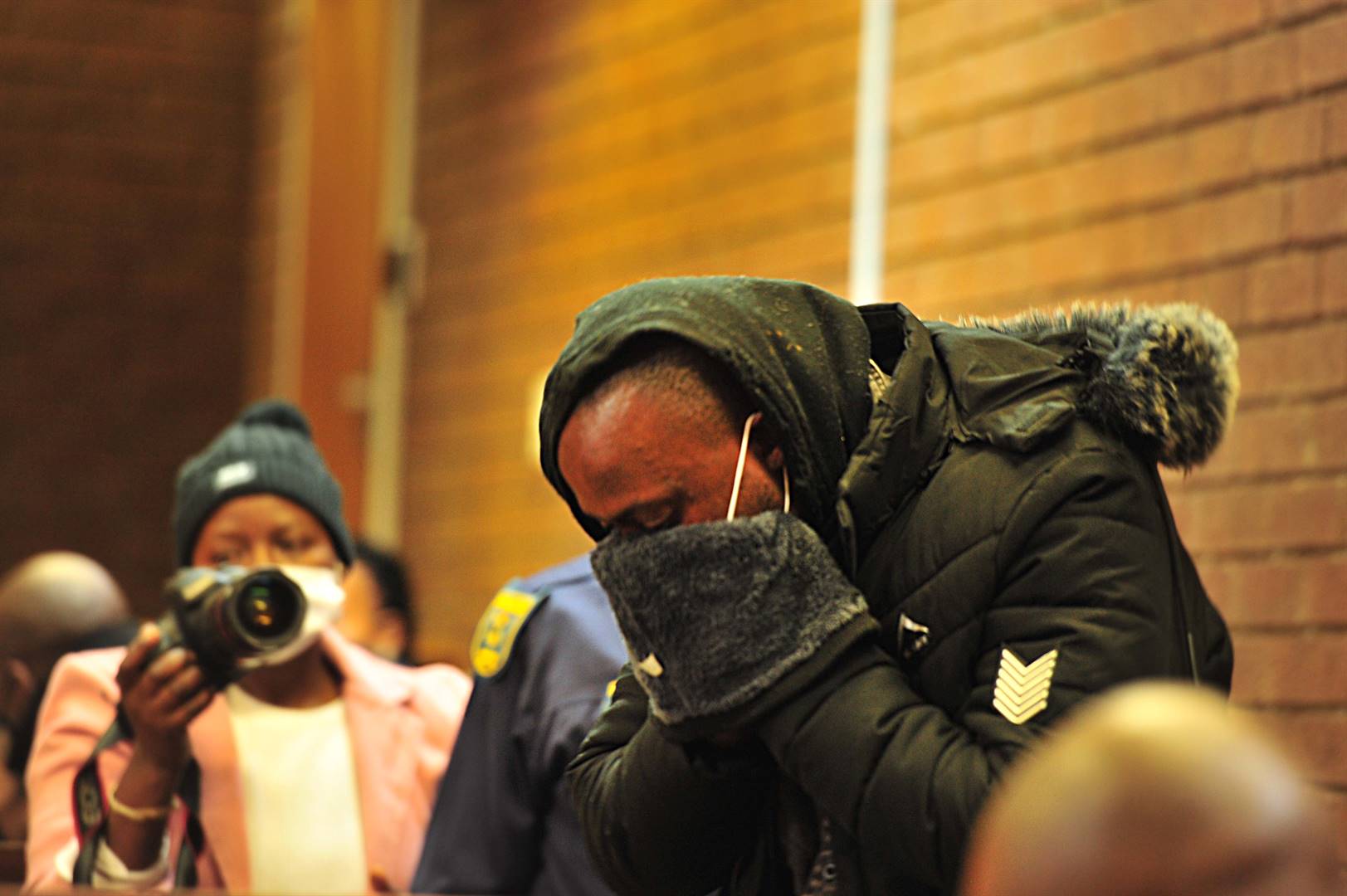


Dressed in a black jacket and a hoody, Muzikayise Malephane appeared in the Roodeport court for the murder of Tshegofatso Pule.
- DNA results and cellphone records are still outstanding in the Tshegofatso Pule murder case.
- Mzikayise Malephane, 31, is accused of killing Pule, 28.
- Pule’s uncle Tumisang Katake said the family was happy with the progress of the case so far.
The State is still waiting on DNA results, cellphone records, and witness statements before the Tshegofatso Pule murder case can proceed.
This was what prosecutor Mosa Makhubele told the Roodepoort Magistrate’s Court on Thursday when the case was postponed.
Mzikayise Malephane, 31, is accused of killing Pule, 28, who was found stabbed and hanged from a tree in a veld in Roodepoort. She was eight months pregnant.
Malephane is expected back in court on 29 September.
Outside the court, Pule’s uncle Tumisang Katake, said the family was happy with the progress made in the case so far.
“I think they are expediting the process of investigations. There is nothing I can fault that the police had done so far. They have been doing an excellent job and they keep us informed and tell us what it is they are going to do in the next coming phases.
READ | Gunmen open fire at Cape Town taxi rank, man killed
“I haven’t discussed the case with police…I wouldn’t be surprised if they make other arrests…I don’t think that it was one person who murdered Tshegofatso,” Katake said.
“During the previous appearance, I have been saying there is a time and place for everything. If we have to protest in court, we will be doing an injustice [to ourselves]. Protests can be done outside. Inside the court is where cases need to be ventilated.
“We have to allow court processes to unfold in court. I think going forward, we will get more co-operation from the public and the understanding [of] how criminal proceedings unfold in court.
EXPLAINER | Here’s what you need to know about the murder of Tshegofatso Pule
“This case brings mixed emotions. It is sad. We want to know what happened to Tshegofatso. What happened? What did they do to her? Seeing the accused in court reminds us of the ordeal,” Katake added.

